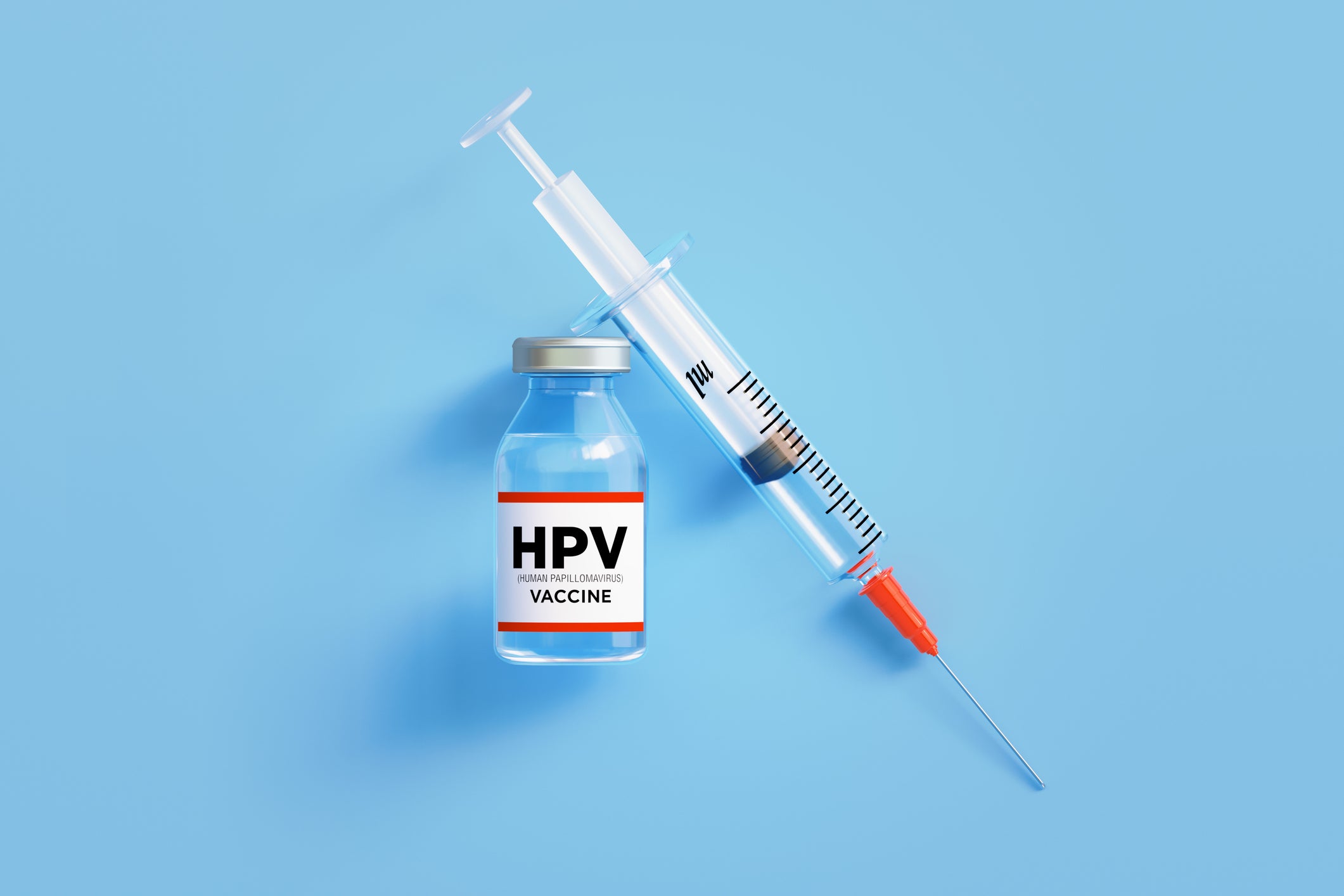Young women across certain regions of England are facing an elevated risk of cervical cancer, a direct consequence of alarmingly low uptake rates for the preventative human papillomavirus (HPV) vaccine, health experts have cautioned.
Analysis from the UK Health Security Agency (UKHSA) underscores this critical public health concern, revealing that insufficient vaccination among children is leaving many women vulnerable to the disease.
The disparity is stark: cervical cancer rates are already 65 per cent higher in England's most deprived areas compared with the least, according to figures from Cancer Research.
HPV refers to a group of common viruses, typically transmitted through sexual contact, which often present no symptoms but can lead to various cancers, including cervical cancer.
Around 13 high-risk types of HPV are known to cause 99.7% of cervical cancers.
The HPV jab is given to boys and girls when they are in Year 8 and is key to wiping out cervical cancer in the UK. Some children receive it in Year 9.

The jab also protects against genital warts and head and neck cancers, such as those in the mouth or throat.
UKHSA data for 2023/24 in England shows inequalities in uptake of the jab in some regions.
By Year 10, HPV coverage in girls was lowest in London (64.9%) and highest in the South East (82.7%).
Among boys, it was also lowest in London (58.9%) and highest in the South East (77.3%).
Meanwhile, at local authority level, Year 10 vaccination levels in girls ranged from 38.7% (Lambeth in London) to 97.6% (Northumberland).
Among boys, it ranged from 28.2% (Lambeth in London) to 92.2% (West Berkshire).
The HPV jab delivers a significantly stronger immune response if given before the age of 16, though getting it when older as part of a catch-up programme still creates a strong response.
Dr Sharif Ismail, consultant epidemiologist at UKHSA, said: "The HPV vaccine, now just a single dose offered in schools, is one of the most powerful tools we have for cancer prevention.
"Every vaccination represents a young person with better protection against the devastating impact of HPV-related cancers, and we must do more to ensure that no teenage girl or boy, young woman or man is denied that protection no matter where they live.
"Although we have seen some increase in the number of young people being vaccinated, uptake is still well below pre-Covid pandemic levels.
"Over a quarter of young people - many thousands - are missing out on this potentially life-saving vaccine.

"We're calling on all parents to return their children's HPV vaccination consent forms promptly.
"This simple action could protect your child from developing cancer in the future."
Dr Ismail said any young adult up to age 25 who missed their school jab can speak to their GP about catch-up options.
He also urged women to still attend cervical screening to ensure they are being checked for changes that could lead to cervical cancer.
In 2023, the then head of NHS England, Amanda Pritchard, said cervical cancer would be wiped out in England by 2040.
Cancer Research UK chief executive Michelle Mitchell said: "Thanks to the power of research and the efforts of NHS staff, a future where almost nobody gets cervical cancer is in sight.
"This progress hinges on people's access to two life-saving offers - HPV vaccination and screening. Together, they give the best protection against the disease.
"Beating cervical cancer means beating it for everyone, so I encourage all parents and guardians to ensure young people don't miss out on getting the HPV vaccine.
"And if you receive your cervical screening invite, don't ignore it."
Dr Amanda Doyle, national director for primary care and community services at NHS England, said: "The NHS HPV vaccination programme has already helped save thousands of lives and we need to go further to boost uptake of HPV vaccines and cervical screening to help eliminate cervical cancer in England by 2040.
"If we can ensure that almost every Year 10 girl in some areas is protected and extremely unlikely to ever develop cervical cancer, we need to match this in every part of the country."
Groundbreaking single-dose vaccine found effective in preventing HIV
New CDC advisers will skip some expected topics and explore a target of antivaccine activists
Dismissed members of CDC vaccine committee call Kennedy's actions 'destabilizing'
Meet the vaccines skeptics that are now part of RFK Jr.’s vaccine approval committee
Rabies: What are the symptoms and how to get a vaccine?
A simple blood test could offer first reliable diagnosis for chronic fatigue







